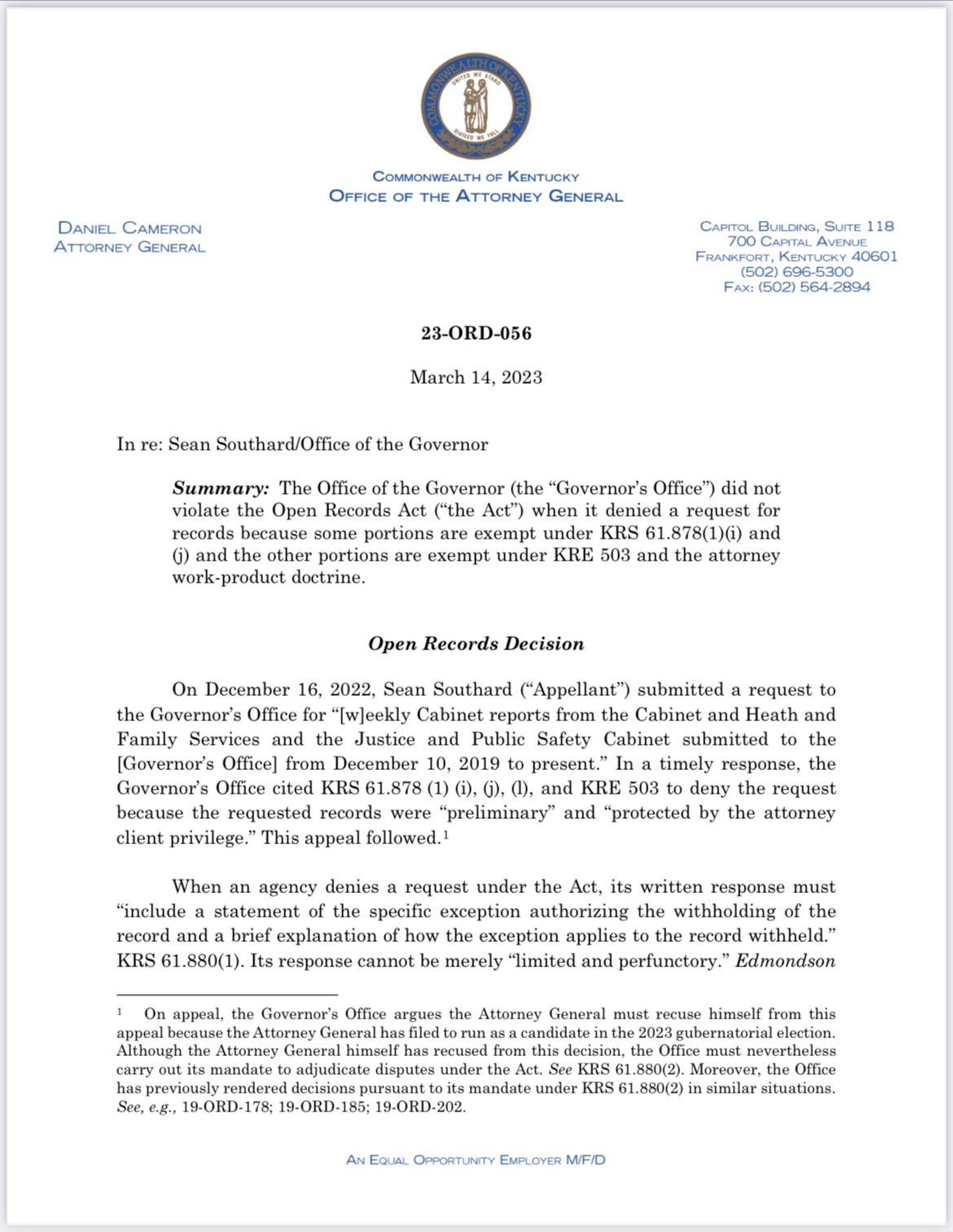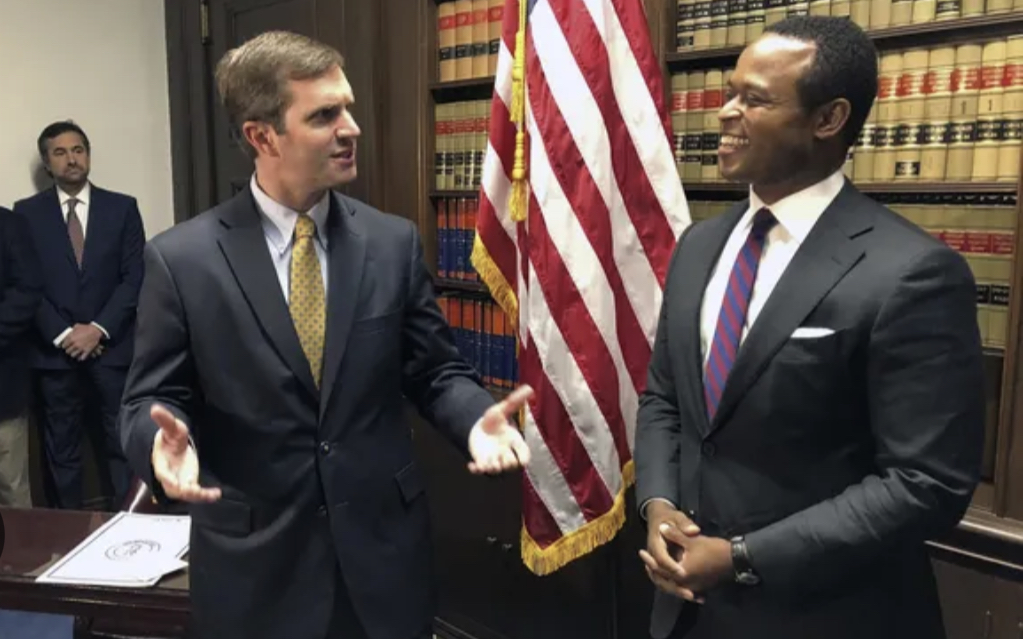

As controversy heats up in the upcoming gubernatorial race, it may be cooling down for the incumbent, Governor Andy Beshear, in the open records arena.
https://kyopengov.org/blog/tune-out-rhetoric-turn-down-accusations-and-…;
https://kyopengov.org/blog/its-open-records-strike-two-office-governor-…;
Last week, the Kentucky Attorney General issued an open records decision affirming Gov. Beshear’s denial of Republican Party Director Of Communications, Sean Southard.
And for all the hype that surrounded the Attorney General’s reproofs of Beshear’s handling of earlier requests submitted by Southard, there may be an important lesson here.
In two earlier open records decisions — 23-ORD-06 and 23-ORD-10 — the Attorney General rejected Beshear’s unsubstantiated claims that Southard’s open records requests for communications exchanged by officials within Beshear’s administration were insufficiently specific and unreasonably burdensome — the default position for public agencies seeking to avoid records requests without substantive legal justification.
https://www.ag.ky.gov/Resources/orom/2023-OROM/2023/23-ORD-006.pdf
https://www.ag.ky.gov/Resources/orom/2023-OROM/2023/23-ORD-010.pdf
In 23-ORD-056, the Governor successfully denied Southard’s request for “weekly Cabinet reports from the Cabinet and Heath and Family Services and the Justice and Public Safety Cabinet submitted to the [Governor’s Office] from December 10, 2019 to present.”
https://www.ag.ky.gov/Resources/orom/2023-OROM/2023/23-ORD-056.pdf
Citing the preliminary documents and attorney client privilege — KRS 61.878 (1) (i), (j), (l), and KRE 503 — Beshear promptly denied Southard’s request asserting that the reports were “preliminary” and “protected by the attorney client privilege.”
The Attorney General concluded that “the Governor’s Office’s response denying the request complied with KRS 61.880(1) because it separated responsive records into categories based on the exemptions that applied, described the contents of the records within those categories, and explained how the claimed exemptions applied to those respective portions of the reports. The Governor’s Office also properly relied on KRS 61.878(1)(i) and (j), as well as the attorney-client privilege and attorney work product doctrine, to deny the Southard’s request.”
One could cynically speculate that by affirming the incumbent’s denial of a request for weekly reports submitted by heavily scrutinized and often controversial cabinets, the Attorney General is hedging his bets for the future as a candidate for the Office of Governor (and the potential recipient of similar requests).
But, of course, this Attorney General has made clear in both word and deed that his predecessors’ analyses of the open records and open meetings laws has no precedential value and can be abandoned on a whim. If his successor adopts this view — at the expense of uniformity in interpretation and resulting confusion/chaos in agency application of the laws — 23-ORD-056 will stand as little more than a temporary lull in the political storm.


